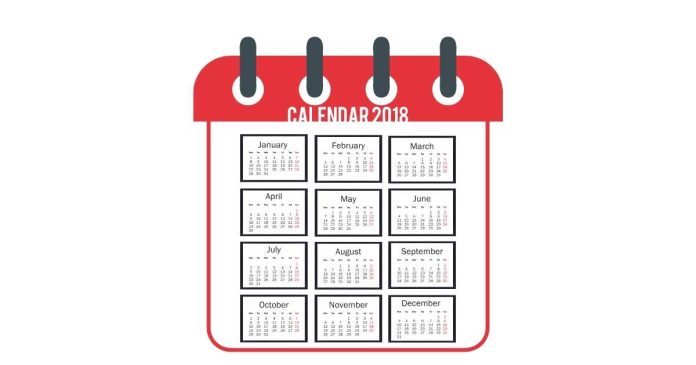The number of days in a year depends on the type of year being referenced: a common year or a leap year. Here’s a detailed explanation of how each is calculated:
1. Common Year
- A common year is the standard calendar year that most people follow.
- A common year has 365 days.
2. Leap Year
- A leap year occurs once every four years to help synchronize the calendar year with the Earth’s orbit around the Sun.
- A leap year has 366 days.
Why Leap Years Happen
The reason leap years exist is because the Earth’s orbit around the Sun takes approximately 365.2425 days. This means that if we were to use a standard 365-day year every year, the calendar would slowly drift out of sync with the seasons. To correct for this slight discrepancy, an extra day—February 29—is added to the calendar every four years.
Leap Year Rules
However, it’s not as simple as adding a leap day every four years. There are some exceptions, defined by the following rules of the Gregorian calendar, which is the calendar used by most of the world today:
- Every year divisible by 4 is a leap year, except:
- If the year is divisible by 100, it is NOT a leap year, unless:
- If the year is divisible by 400, it is a leap year.
Examples of Leap Years:
- 2000 was a leap year (because it’s divisible by 400).
- 1900 was not a leap year (even though it’s divisible by 4, it is also divisible by 100 but not by 400).
- 2020 was a leap year (because it’s divisible by 4 but not by 100).
- 2024 will be a leap year (divisible by 4 and not divisible by 100).
Average Length of a Year
Because leap years occur every four years, the average length of a year is actually a little more than 365 days:
- The average year length is approximately 365.2425 days.
To account for this, the Gregorian calendar uses a formula for the number of leap years:
- Every 4 years = 1 leap year
- But every 100 years = no leap year
- However, every 400 years = 1 leap year
This calculation makes the average year length about 365.2425 days, which is very close to the actual time it takes for the Earth to orbit the Sun.
Summary of the Number of Days in a Year
- Common year: 365 days
- Leap year: 366 days
This system of leap years keeps our calendar aligned with the Earth’s orbit, ensuring that the timing of seasons, solstices, and equinoxes stays relatively consistent over time.
What About Other Calendars?
Different cultures use different calendars, and in some cases, the number of days in a year may vary:
- Lunar calendars, such as the Islamic calendar, are based on the Moon’s cycles rather than the Earth’s orbit around the Sun. The Islamic year has 354 or 355 days, which is shorter than the solar year. This is why Islamic holidays, like Ramadan, shift by about 10-12 days earlier each year in the Gregorian calendar.
- Hebrew calendar: This is a lunisolar calendar that uses 12 months in a common year (about 354 days) and 13 months in a leap year (about 384 days), adjusting for the solar year.
- Chinese calendar: The traditional Chinese calendar is also lunisolar. A common year has 354 days, while a leap year has 384 days, to account for the difference between the solar and lunar years.
Conclusion
In the Gregorian calendar, which is the most widely used calendar in the world, a common year consists of 365 days, and a leap year has 366 days. The leap year system is used to compensate for the fact that the Earth takes approximately 365.2425 days to orbit the Sun. This helps maintain the alignment between the calendar and the astronomical year.


